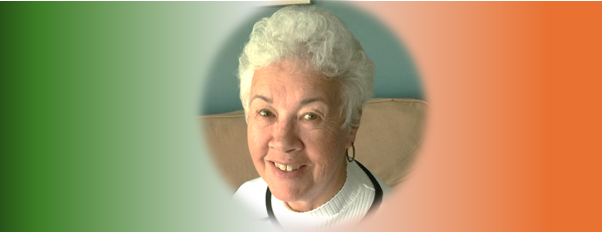
Helen Cooper
Community Council Spotlight
June 6, 2023.
Helen Cooper lives in the city of Kingston. She spoke to us about her views on aging, programs and activities for seniors in the region and what motivated them to get involved with the FLA OHT.
In her own words
First of all, I recoil from the descriptor of myself as a “senior”. I am now in my seventies but still think that I haven’t quite reached that status yet. I suggest there is an unfortunate connotation for that word in our society. It is frequently used patronizingly – that services must be offered to us through decisions made by others younger than us who know what’s best for us, that we deserve exceptional kudos for continuing to contribute to society in ways we have always considered our responsibility. In reflecting on the use of this term I am really addressing pervasive ageism.
I got elected to Kingston City Council in 1980 as a young mother of two daughters. I sought relevance to the world around me through volunteer community activity with an activist edge – saving Kingston’s historic buildings, revitalizing the downtown core, and following the evolution of the land use planning regime – so a run for Council was a logical next step. I ran successfully for mayor in 1988. My last job was as a manager for Adult Development Services in what was then the Ministry of Community and Social Services. When I retired, an old and dear friend recruited me for the board of Oasis Senior Supportive Services Inc. It has been a highly educational experience learning about the ingredients for aging well.
Why I volunteer and share my experiences with the FLA OHT
Although I have been a caregiver for members of my family in the past that is not currently the case for me. I am, thus, quite limited in being able to speak to current experience within the health-care system. Where my current interest lies is in broadening the scope of what we traditionally think of as health care by developing and promoting programs to support the primary prevention of illness and disability, particularly as we all age.
More and more research is revealing that the single greatest determinant of continuing good health is the maintenance of strong positive interpersonal relationships. Addressing loneliness and isolation is important for people of all ages. This becomes even more critical for older people who are that much more physically and mentally vulnerable. My personal goal in joining the FLA OHT is to advance our understanding of these factors in the development of a much more holistic and integrated health-care system.
What has impressed me most of all is the dedication of the people in the Aging Well at Home Working Group to improve the lives of the people they serve. The people who work in home care and community services work tirelessly. They crave the opportunity for greater connection among their service offerings. When they achieve this, often overcoming almost insurmountable bureaucratic hurdles, their patients and clients get the services they need. Citizens are often not in a position to be aware of the often heroic efforts that underlay the smooth and appropriate service they are receiving. It’s always unfortunate that most publicity is directed to events where things don’t go smoothly.
Encouraging new ways of thinking about aging and creating better-connected age-friendly communities
Older adults themselves are, more than anyone else, advancing the cause of new ways of thinking about aging. The baby boom generation has now reached the mid-‘70s. Because Canada experienced one of the world’s longest and largest baby booms, that generation has been quite used to influencing societal trends for decades. Advocates are increasingly vocal about how they wish to approach old age. A very high percentage are opposed to a future that includes institutional long-term care. Examples of other countries such as Denmark and Japan are illustrating that this is possible.
Municipalities are developing their role as age-friendly communities. This is a comprehensive concept not just addressing health-care related services but also revisiting zoning by-laws and public infrastructure to encourage appropriate housing forms integrated with walkability to essential everyday community services and businesses.
Programs and services geared towards improving the well-being of older adults
The AVOID Frailty website lists a huge variety of community resources of interest to older adults and geared towards improving their well-being – a prime example of how the community can work together effectively, share resources and avoid duplicating efforts.
For people at any age to lose a sense of control over their own lives is devastating leading to very poor mental and physical health. For people in equity-deserving groups this is often greatly compounded by misunderstanding and discrimination. I suggest we must all address preconceptions about the people we are working to support to give them the opportunity to lead the most fulfilling lives they can.
